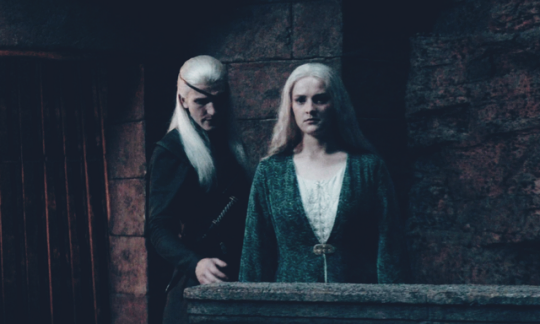Note
Top 5 frog lady moments 😌
① that time Peli and Frog Lady casually conversed in frog
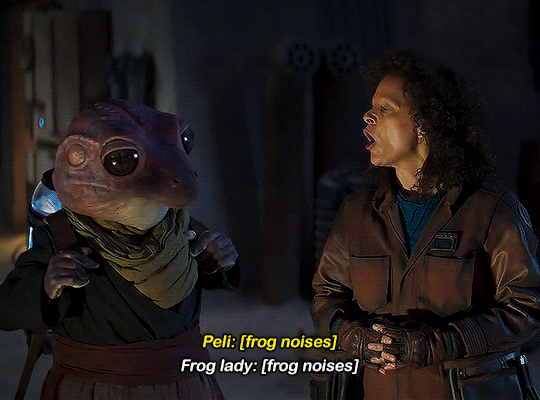
② that time she absolutely roasted Din 😬

③ that time she ran LEAPT i mean look at her go!

④ that time she babysat Grogu with her tadpole child

⑤ that time she did her best not to die

BONUS BECAUSE FIVE IS NOT A BIG ENOUGH NUMBER: them 😌

*screams into my pillow*
500 notes
·
View notes
Photo
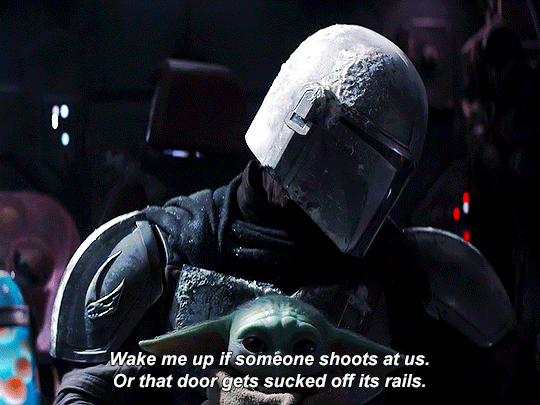
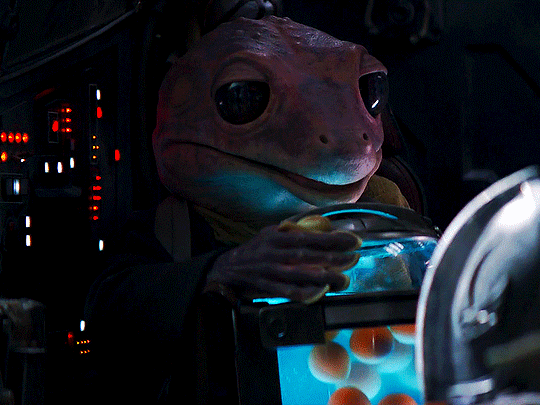
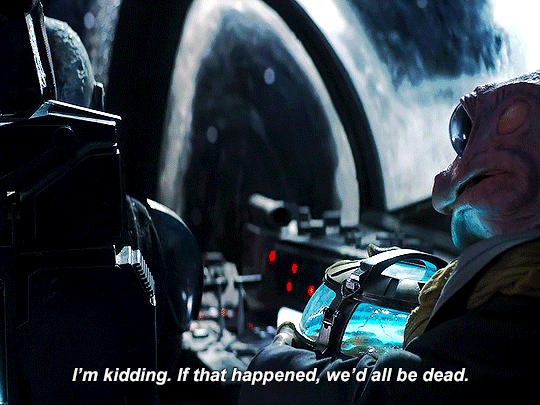
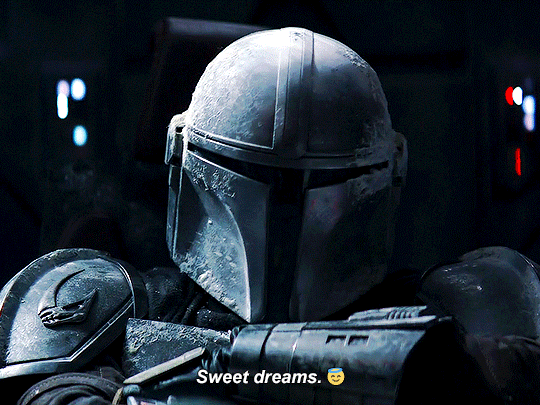
Din “funny guy” Djarin in The Mandalorian (Chapter 10, The Passenger)
2K notes
·
View notes
Text

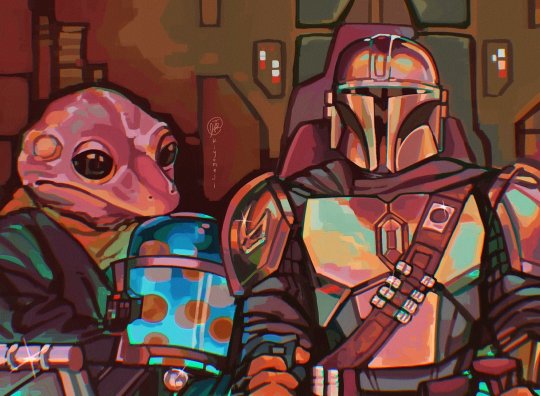


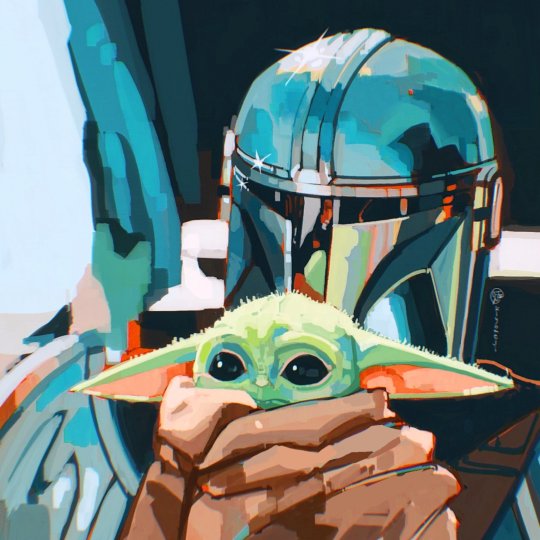
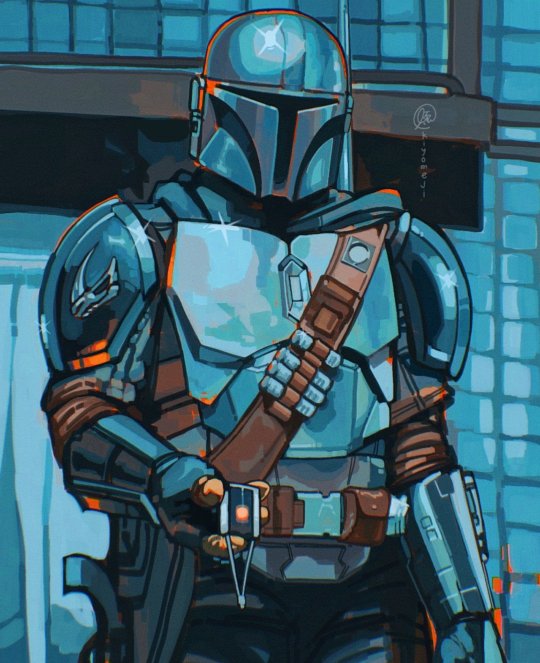
The Mandalorian by kiyomeji (x).
6K notes
·
View notes
Note
i think people are so focused on din being such a good dad (or daddy) that they forget that he really doesn't care about other people (not related to him in any way) in general. he saved villages and towns because he was paid to or he gets something in exchange, not from the goodness of his heart. this says a lot about his moral compass as a character and i love that about him. so many people think he's kind and caring because they only ever really see him with grogu but outside of that he's a cold and calculating individual who can be merciless in his job.
I do think the focus of the character skews in favor of those first two options in fandom like you said, but I’d disagree in saying he doesn’t care about other people beyond what transactions he has with them; the flashbacks he has of Aq Vetina highlight the fact the Mandalorians showed up to save people who couldn’t save themselves, and those are the people he was then raised by. They’re a community-oriented people, and though they’re wary of outsiders for good reason, supplemental SW material says they’re generally not openly hostile unless somebody else throws the first punch, and hospitality extended to friendly allies or strangers is encouraged. Mando says “Thank you” a lot and that speaks to more than just good manners to me. He builds relationships. If he didn’t care about people, he wouldn’t have formed a connection with or gone back for the kid in the very beginning, which I think speaks the most to his character because that kind of care isn’t born in a vacuum.
The longer answer is that though we know Mando specifically cares about his clan and covert, I think that sense of community and the desire to see other people safe extends to the Sorgan village and Mos Pelgo too, same as it does to the individuals he makes friends with along the way.
Peli had already fixed his ship by the time he got back to the hangar that night in “The Gunslinger” and if she hadn’t, there’s plenty of other mechanics on Tatooine; if he only cared about the kid, he could’ve shot Peli to get her out of the way the second he saw the three of them so he could get a clear shot of Calican. He also didn’t have to overpay her to make up for the trouble before leaving, but money is also one of the only ways he CAN smooth over the problems he causes people so that’s all he could do there by way of apology
He could have just killed Cara Dune when she attacked him first, but he didn’t pull his gun until she did and still retained the presence of mind to see if a truce could be found since she also didn’t shoot the kid the moment she saw him, nor did she use his own distraction to get a shot in
The guilt trip the Frog Lady invokes by appealing to his sense of family and holding him to the reputation of Mandalorians being honorable and keeping their word wouldn’t have worked if he didn’t care about her beyond what information he thought he already wasn’t going to get because their situation seemed hopeless.
He didn’t have to let the crew in “The Prisoner” live if he didn’t think everybody— even the people who betray him— deserved at least one chance. He could’ve killed Karga at the end of “The Sin,” but he specifically shot Karga where he knew for a fact Karga had beskar shielding him.
He’s sad when it becomes clear IG-11 is going to sacrifice himself in the finale, and he made it a point to give Kuiil a proper burial.
Part of the reason everything he does feels transactional is because 1. Trading and working have been his primary interactions with people as a lone hunter who spends the majority of his adult life working paycheck to paycheck, and 2. Mando shows his care for others by doing things. His abilities and actions aren’t just currency, but the loudest way he has or knows how to show his care or gratitude. He’s not big on words or physical touch (lone hunter/survivalist, emotionally reclusive, guarded Mandalorian), he can’t afford to spend time with people and likely knows the reputation and staunch refusal to remove his armor and helmet make it hard to connect on a personal level and be good company in casual settings (best shown in how he never eats around anybody, except the kid), and he lives a meager life with few creature comforts himself, so any physical gifts he can give or share are few and far in between, but are also practical and/or the results of the actions he took to acquire them (a better cradle and chainmail for Grogu, beskar for the covert, blankets for the Frog Lady, soup for Cara Dune in the lodge, dragon meat for Peli, heck even his willingness to relinquish the armor to Fett could fall under that category), and that same thought process tracks for gifts given to him or how he views them given between other people
Mando wanted to lay low on Sorgan long term and he asked after lodging in the farm village— If he didn’t care about the people when the job turned out to be bigger/more dangerous than anticipated, he wouldn’t have stuck around and risked his neck when he very easily could have moved on. He’s got a ship, he’s got fuel, it’s a big planet, and right now nobody’s chasing him. Instead he tells the village they have to pick up and move if they want to stay safe (which makes sense coming from a nomad whose own people, it’s implied, have had to relocate several times because of encroaching danger), which negates his whole purpose in coming to them in the first place if his regard of them is only transactional (if he really wanted to stay somewhere and needed their community to be that homebase, he would have started with the idea of telling them to cowboy up and fight so he could by extension stay there). He still could have ditched at any point, grabbed the kid and took off, but he didn’t.
Same could be said for Mos Pelgo. Those townsfolk were more capable than the ones on Sorgan, but their physical opponent is about a thousand times bigger than two dozen bandits and a Walker. Yes Din wanted the marshal’s armor, but realistically he shouldn’t have had to bargain with anything for it and would have been justified in fighting or killing the marshal and forcing him to give it up. The Krayt dragon is an absurd job from an outside perspective, and Din easily has fifty pounds on the marshal and would absolutely win in a close quarters fight; he didn’t have to agree to help the people of the town, and he never indicates that he’s going to double cross the marshal and take the armor while they’re out in the desert alone. Mando sees and respects how Vanth takes care of people and mediates between not just the townsfolk, but learns to mediate between the town and the Tuskens. Mando wouldn’t make it a point to be a mediator himself if he didn’t think the people around him were worth the peace, safety and cooperation he helps them find.
There’s a fine line the writers need to walk when it comes to characterizing him because he does have a resigned, realistic, occasionally harsh understanding of the world and how things don't always work out for people. He’s old enough in a dangerous galaxy to have experienced some of the worst it has to offer, and he can really only take things day by day without a guarantee of tomorrow— It gives him an objective understanding of the idea that you can’t save everyone, but that doesn’t mean you shouldn’t try. Mercy often goes hand-in-hand with compassion. We have evidence of him stepping forward to protect people who can’t protect themselves (or spending valuable time and resources enabling them to defend themselves), and that typically doesn’t come from somebody completely detached from interpersonal connections.
His characterization and the writing start to break down a bit in Season 2 at a few different junctures; one of the biggest that comes to mind is “The Jedi” because they made Ahsoka the main character of that episode and didn’t tie Mando to anything concerning the main plot. His whole purpose in that episode WAS transactional because he was just providing backup for her to fight her own enemy so she’d take the kid as an apprentice. The writers didn’t connect him to the town or people or the plot happening there with the corrupt magistrate at all. (That's one of my big complaints with Season 2, the episodes where it feels like he’s being moved around instead of being the one driving the story). If Mando is the main character, you have to connect the plot of each episode to him in some way.
Why doesn’t Mando voice any concern over the citizens or situation in Calodan? Why are their interactions with civilians and the choice to save the people being tortured in the street relegated to barely a footnote within the plot? Why doesn’t he ask more questions about Elsbeth and how she got to be in power? Why doesn’t he voice any concern about being two people against a small army and a woman who— based on circumstantial evidence— must be a pretty formidable opponent if a Jedi has beef with her? What is Elsbeth capable of and should he be concerned?
If he’s only there to act as Ahsoka’s muscle and we don’t get anything about how Calodan affects him, then you as the writer have solidified that this whole chunk of story isn’t actually about him, it’s the third act in the samurai movie you actually wanted to make about this special new character who, in the end, you give an effective exit to go into her own show by having her go back on her word to the guy who should be the main character. (We as the audience don’t have to worry about that though because I guess Mando’s okay with it because he never says anything to the contrary. Another dead end with the barest flimsy offer of information sending him elsewhere. If Ahsoka can’t be trusted to keep her word, why should he believe anything she tells him after that? Mando should have been angry with her, and justifiably so.)
I guess my point here was that I’m picky about his interpretation when the writers/fans don’t quite strike the right balance between him being an intimidating, ruthless hunter as well as an intelligent person who can analyze each circumstance with a sense of restraint. They don’t know where to draw the line on his sense of mercy and end up making him a pushover as a result like in “The Heiress” and “The Jedi” and a few other S2 plot points (if not outright woobifying him).
Mando’s moral compass has a balance between justice and mercy, but because his character is hidden behind a mask and rarely speaks, we can only get so much from the rest of his body language and performance (and the aid of good cinematographers) alone, which means it’s up to the writers to have a clear idea of why he does everything he does in a scene. If they don’t have a clear sense of what this guy is thinking based on his character history up to that point, his actions aren’t going to convey the right story and it muddies the character for the audience in unintended ways, especially if that considerable change in his character is never resolved (see: same episodes listed above).
The second season opens with him going to Gor Koresh for information and having to fight his way out of a trap, but only after he gives the don the chance to back down. Gor Koresh doesn’t, and Mando’s retaliation is swift, just, and gruesome. Mando shouldn’t have put up with Bo-Katan manipulating him and changing the terms of their deal midway through the hijacking, and I think he should have jumped ship and left her to the consequences of her deceit as a result. I think the interactions he had with Ahsoka should have built in conflict because he should be at his most desperate, having finally found somebody he believes more capable than himself of caring for and protecting the child, and here she is refusing him (and in the end, breaking the terms she agreed to).
Both of those episodes push to the side how his character should be reacting in favor of getting to the right circumstances for Luke “Deus Ex Machina” Skywalker to show up at the end of the season as the Jedi who will train the kid (Oh hey audience, just ignore the fact Mando’s never met this guy, no one knows who he is when he arrives, and also he’s dressed like Moff Gideon when he shows up)
Not that I’m bitter. But I digress.
A good example of the writers actually giving Mando the voice to his change of heart concerning a conflict he started off with with another character is at the end of “The Tragedy” when the two of them discuss the armor and Fett’s claim to it. That interpersonal conflict has setup and meaningful closure given in a way that makes sense for Mando’s character based on what we know of him up to that point, where I think the other two episodes don’t resolve the characters’ conflicts in ways consistent with what Mando’s character should have thought and said once they broke the terms of their deals.
A lot of writers, showrunners included, sort of defang the justice side of him, and I mean justice not only in the sense of the law and him hunting down criminals, but justice in interpersonal conflicts too. The writers (and fandom) tend to neglect/overlook/not analyze the established characteristics of what makes him probably the best bounty hunter of that time: intelligent, analytical, observant, detached, patient, incredibly skilled, and efficient. He’s not gullible, and when it comes to people who are already criminals, he doesn’t have any qualms about tracking them down and dragging them back by any means necessary for payment (though if the showrunners had spent more time on that aspect of him, we could have gotten into how the justice system operates vis-à-vis who is declared a criminal by whom).
When he’s doing something dangerous with dangerous or more specific people in the monster-of-the-week adventure, he should be more intimidating, deadly, ruthless and capable, but at the end of the day he still needs to be the same person capable of soothing a frightened child. Finding the balance lies in the fact he shows innocent people compassion and gives guilty people mercy— And if that guilty party expends that chance, then we see the legendary bounty hunter who doesn’t stop until justice (his own or otherwise) is achieved. He wouldn’t give people those chances if he didn’t see them as anything more than what they’re worth in his pursuit of material gain.
23 notes
·
View notes
Text
I love Din Djarin and the clones

29 notes
·
View notes
Text
I fell into writing a fic about Frog Lady from “The Passenger”, and the more I write, the more I adore her.

3 notes
·
View notes
Text
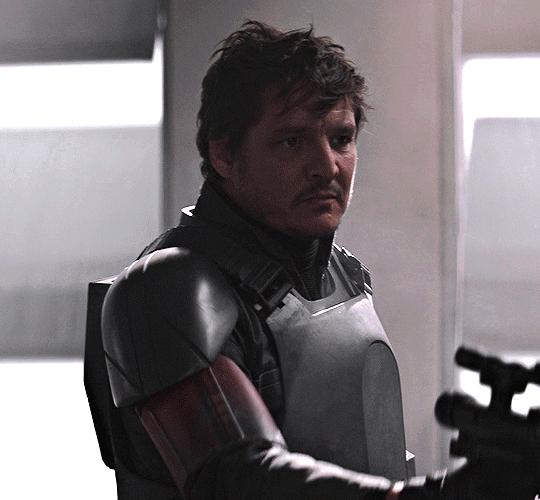

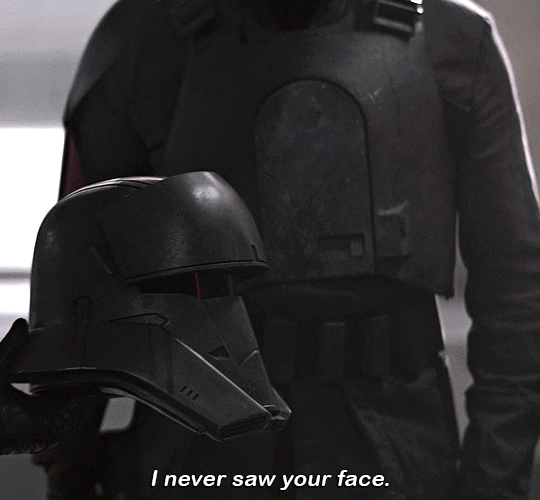


THE MANDALORIAN Chapter 15: The Believer
2K notes
·
View notes
Text
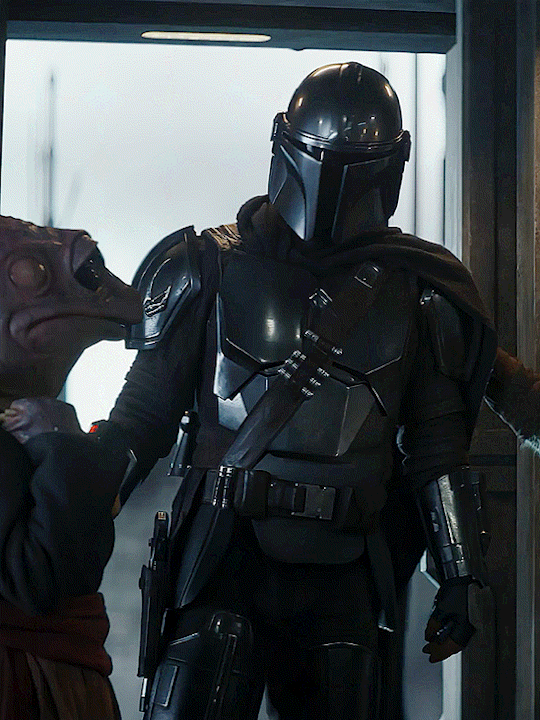

Din Djarin + Chapter 11: The Heiress
630 notes
·
View notes
Text
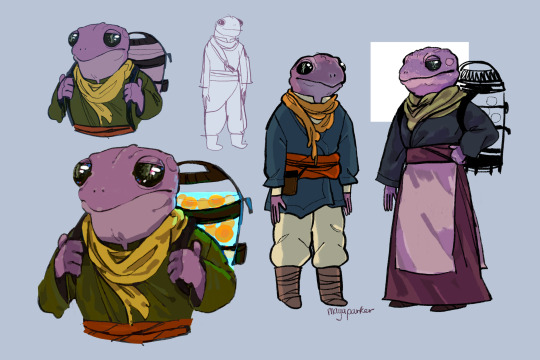
frog lady my beloved my sweetie
259 notes
·
View notes
Text
— ewan mitchell and phia saban talk about helaena and aemond's dynamic and helaemond shippers
"so it's really cool that people have had such a strong feeling about our chemistry and our dynamic."
"they're closer, for sure."
28 notes
·
View notes
Text










Final Destination 3
Wendy's pictures
36 notes
·
View notes
Text








MISSION: IMPOSSIBLE – DEAD RECKONING (2023) dir. Christopher McQuarrie
199 notes
·
View notes
